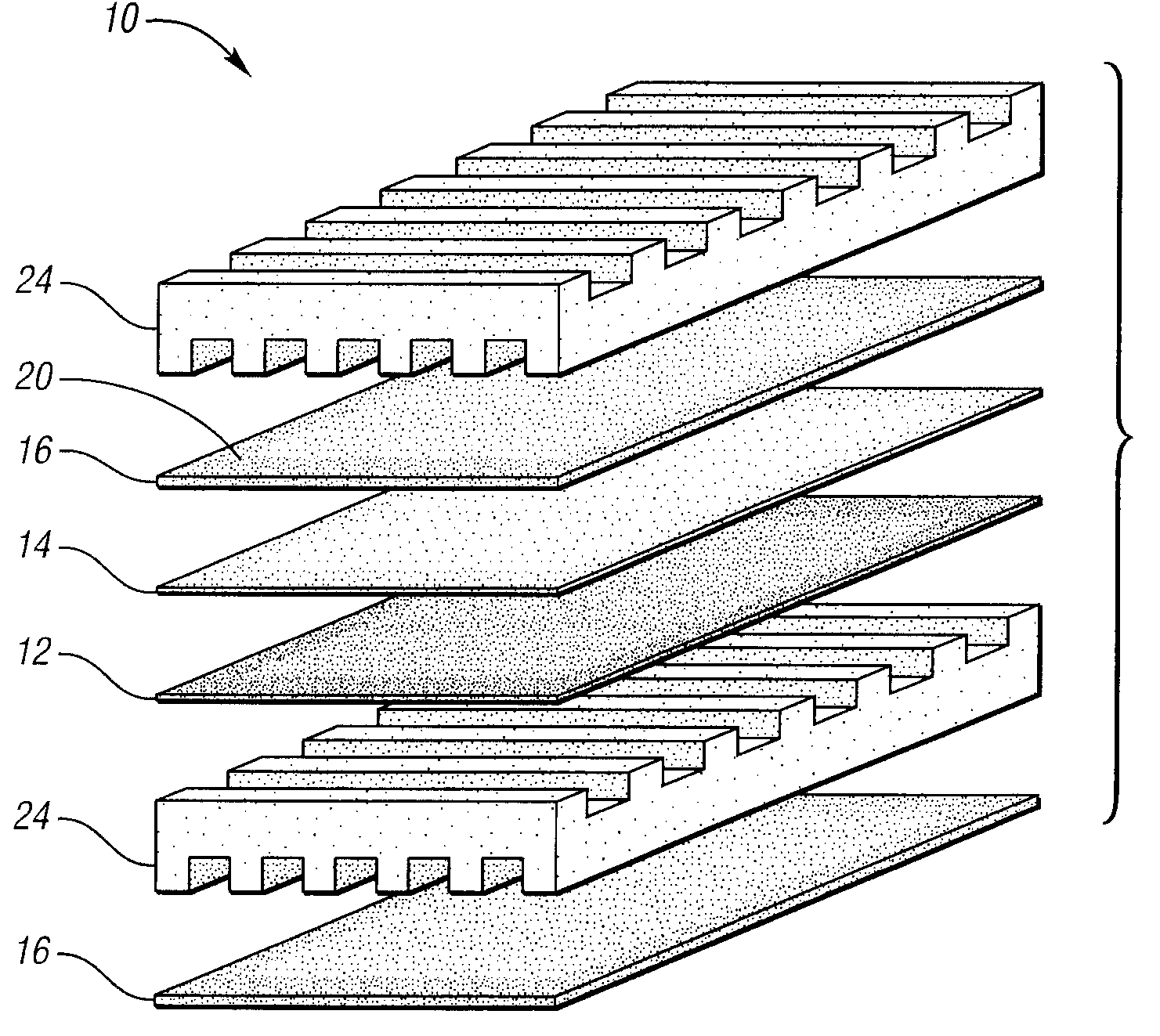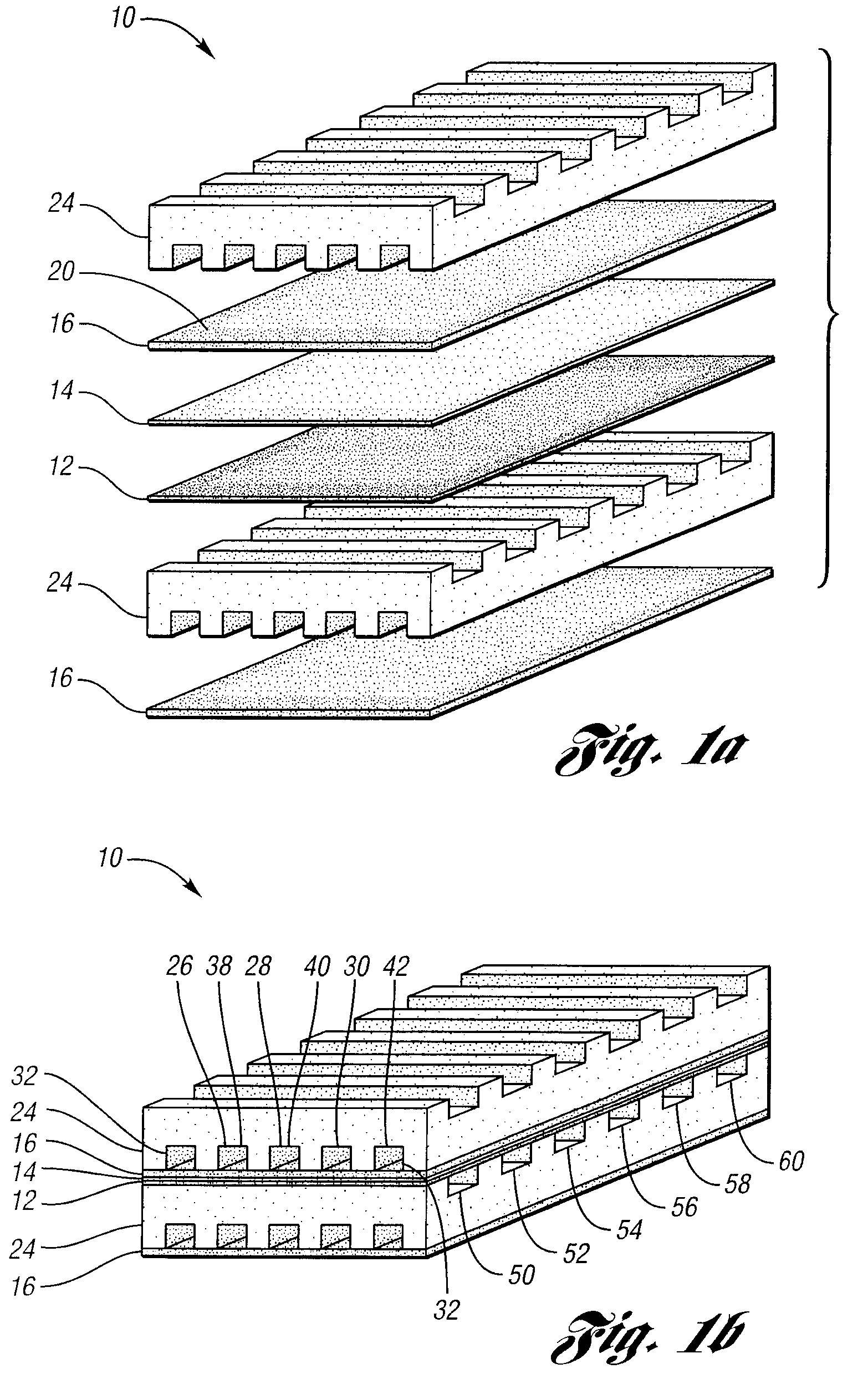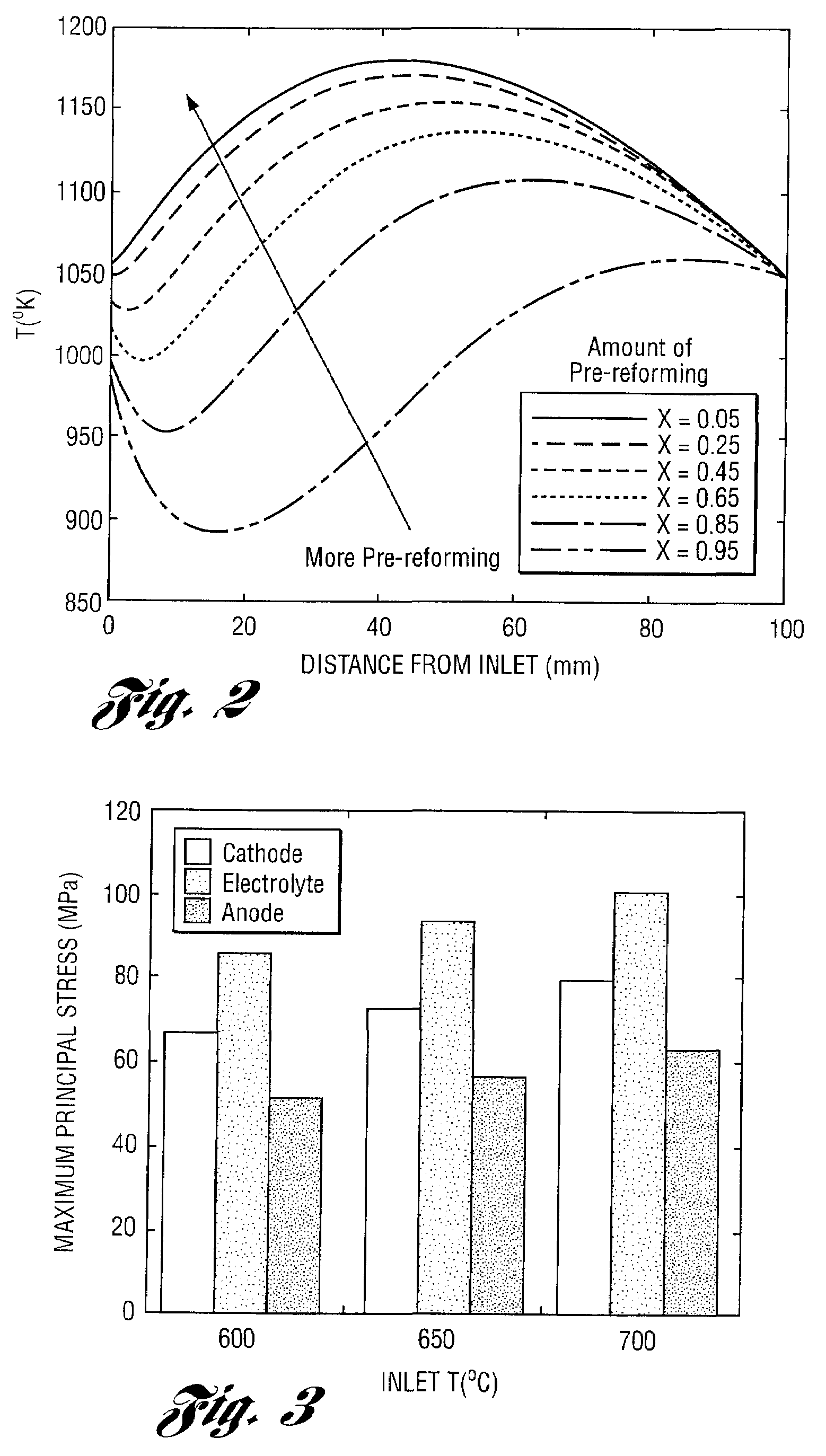Apparatus and method for controlling kinetic rates for internal reforming of fuel in solid oxide fuel cells
a solid oxide fuel cell and internal reforming technology, applied in the field of apparatus and method for controlling internal reforming kinetic rate in solid oxide fuel cells, can solve the problems of slow reaction rate, achieve the effects of increasing rate, promoting reforming, and slowing reaction ra
- Summary
- Abstract
- Description
- Claims
- Application Information
AI Technical Summary
Benefits of technology
Problems solved by technology
Method used
Image
Examples
Embodiment Construction
[0017]The following examples illustrate the various embodiments of the present invention. Those skilled in the art will recognize many variations that are within the spirit of the present invention and scope of the claims.
[0018]In one embodiment of the present invention, a solid oxide fuel cell is provided. With reference to FIGS. 1A and B, schematics of a solid oxide fuel cell in which the anode, cathode, and electrolyte layer are arranged in substantially parallel sheets are provided. Solid oxide fuel cell 10 includes cathode 12, electrolyte layer 14 adjacent to cathode 12, and anode 16 adjacent to electrolyte layer 14. Anode 16 is made from support structure 20. Support structure as used herein means the solid material from which the anode is made. Anode 18 also includes a catalyst that promotes reforming. Accordingly, anode 18 is typically combination of a metal catalyst and a ceramic material. Such a compound structure is referred to a cermet. Typically, the anode layer in such...
PUM
| Property | Measurement | Unit |
|---|---|---|
| thickness | aaaaa | aaaaa |
| thickness | aaaaa | aaaaa |
| thickness | aaaaa | aaaaa |
Abstract
Description
Claims
Application Information
 Login to View More
Login to View More - R&D
- Intellectual Property
- Life Sciences
- Materials
- Tech Scout
- Unparalleled Data Quality
- Higher Quality Content
- 60% Fewer Hallucinations
Browse by: Latest US Patents, China's latest patents, Technical Efficacy Thesaurus, Application Domain, Technology Topic, Popular Technical Reports.
© 2025 PatSnap. All rights reserved.Legal|Privacy policy|Modern Slavery Act Transparency Statement|Sitemap|About US| Contact US: help@patsnap.com



